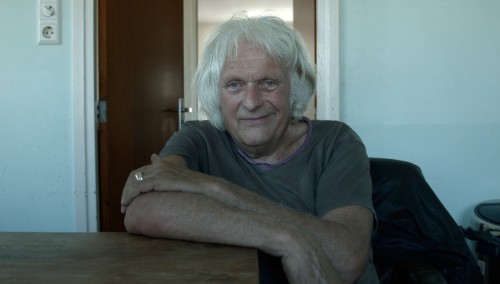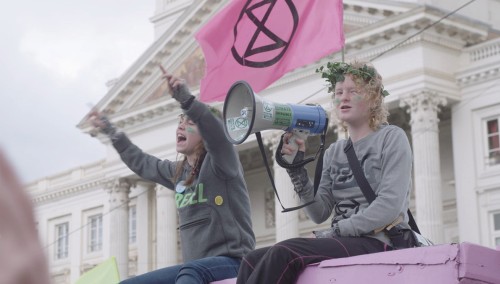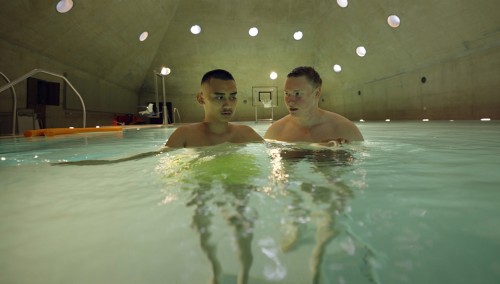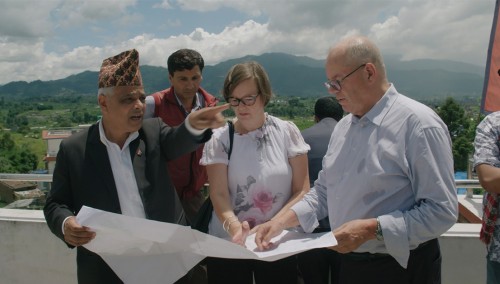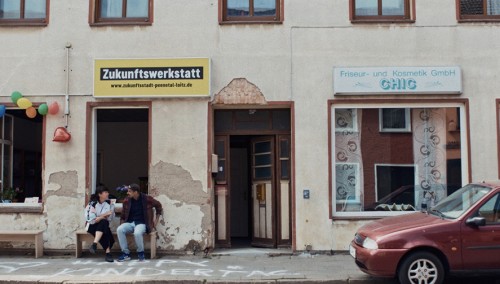The program section curated by Lotte Schreiber gathers documentaries that examine social coexistence in the context of architectural, geopolitical or ecological conditions.
Transformation
Ever since the global rise of the Fridays for Future movement in 2019, the issue that our society is in urgent need of change has become the center of public discourse. The climate crisis can only be solved through a social-ecological transformation of all areas of society. Our responsibility towards future generations commands a switch away from an economy based on unlimited growth towards a model founded on a circular economy. However, notwithstanding the prognoses of science, we are still rapidly pushing the planet to the limits of what it can take.
Against the background of this stocktaking laid out above, the co-operation of architecture forum upper austria and Crossing Europe in the shape of the program section Architecture and Society goes into its fifteenth round. Inspired by the current thematic focus of the architecture forum, five documentaries are gathered under the title “Transformation” that shed a light on the different realities of life in times of change. In the visually stunning documentary GERLACH, for instance, we meet one of the last traditional Dutch farmers who, with his agricultural farm near Amsterdam, braces himself against harassing highways, logistics hubs, and multinational corporations. Aliona van der Horst, whom the festival dedicates this year’s Tribute, and Luuk Bouwman create a sensitive portrait of a quiet hero living with the seasons. For the coming-of-age documentary PLANEET B / PLANET B, Pieter Van Eecke accompanied for more than four years two Belgian youths who skip school for the climate cause. While they are fighting against their future disappearing, the world is opening up to them. Around the same time, a sustainable city for 600,000 inhabitants is to be built in an almost pristine valley outside the Nepalese capital, Kathmandu. TEHTÄVÄNÄ PARATIISI / A PLAN FOR PARADISE gives us an insight into the work of the Finnish architecture office entrusted with the responsible planning task and, in the process, pointedly uncovers deeply rooted cultural differences. It has been 20 years since Herzog & de Meuron planned a rehabilitation center in Basel that, in many respects, has acted as a model to this day. REHAB (FROM REHAB) by the French directing duo Louise Lemoine and Ila Bêka takes the best-practice example by the Swiss architects to ask about the extent to which sustainable architecture can influence healing processes. The question of what art and culture are able to do for rural areas is examined by German director Paul Raatz in UNENDLICHER RAUM / INFINITE PLACE. As a measure to stop the constant out-migration, two artists from Berlin are invited to the small town of Loitz to develop ideas for a cultural revitalization. But how lasting are external impulses like these? (Lotte Schreiber)
Against the background of this stocktaking laid out above, the co-operation of architecture forum upper austria and Crossing Europe in the shape of the program section Architecture and Society goes into its fifteenth round. Inspired by the current thematic focus of the architecture forum, five documentaries are gathered under the title “Transformation” that shed a light on the different realities of life in times of change. In the visually stunning documentary GERLACH, for instance, we meet one of the last traditional Dutch farmers who, with his agricultural farm near Amsterdam, braces himself against harassing highways, logistics hubs, and multinational corporations. Aliona van der Horst, whom the festival dedicates this year’s Tribute, and Luuk Bouwman create a sensitive portrait of a quiet hero living with the seasons. For the coming-of-age documentary PLANEET B / PLANET B, Pieter Van Eecke accompanied for more than four years two Belgian youths who skip school for the climate cause. While they are fighting against their future disappearing, the world is opening up to them. Around the same time, a sustainable city for 600,000 inhabitants is to be built in an almost pristine valley outside the Nepalese capital, Kathmandu. TEHTÄVÄNÄ PARATIISI / A PLAN FOR PARADISE gives us an insight into the work of the Finnish architecture office entrusted with the responsible planning task and, in the process, pointedly uncovers deeply rooted cultural differences. It has been 20 years since Herzog & de Meuron planned a rehabilitation center in Basel that, in many respects, has acted as a model to this day. REHAB (FROM REHAB) by the French directing duo Louise Lemoine and Ila Bêka takes the best-practice example by the Swiss architects to ask about the extent to which sustainable architecture can influence healing processes. The question of what art and culture are able to do for rural areas is examined by German director Paul Raatz in UNENDLICHER RAUM / INFINITE PLACE. As a measure to stop the constant out-migration, two artists from Berlin are invited to the small town of Loitz to develop ideas for a cultural revitalization. But how lasting are external impulses like these? (Lotte Schreiber)
In cooperation with


